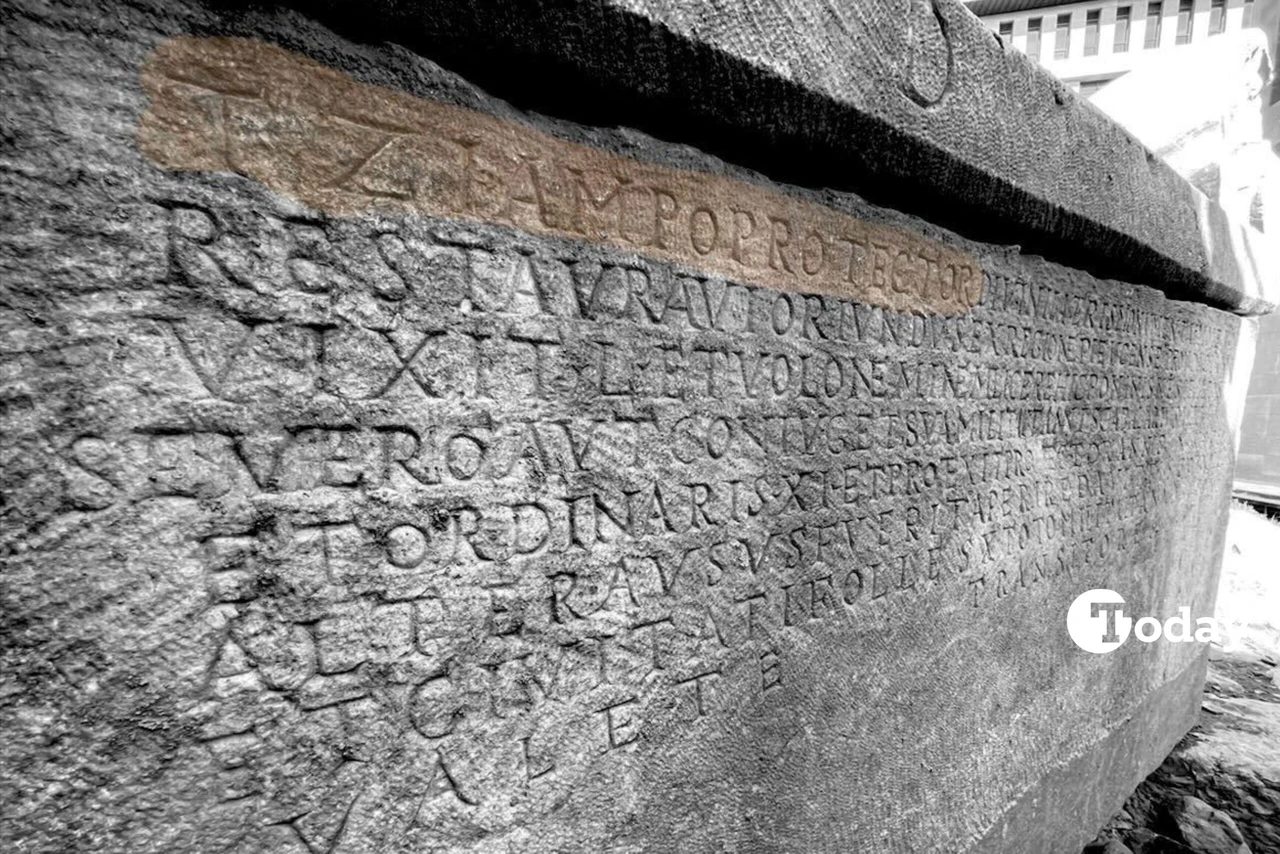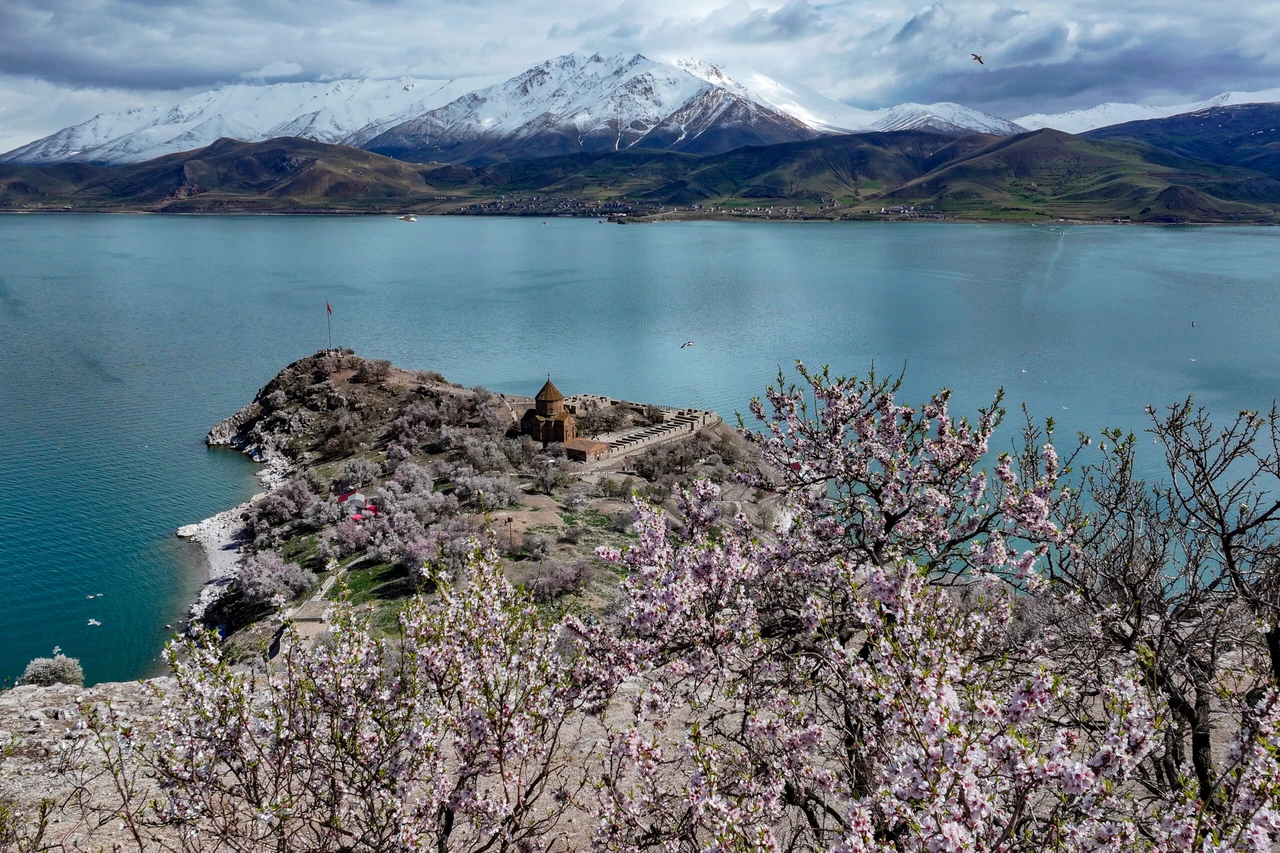Excavations in northeast Türkiye uncover medieval Seljuk-era food storage
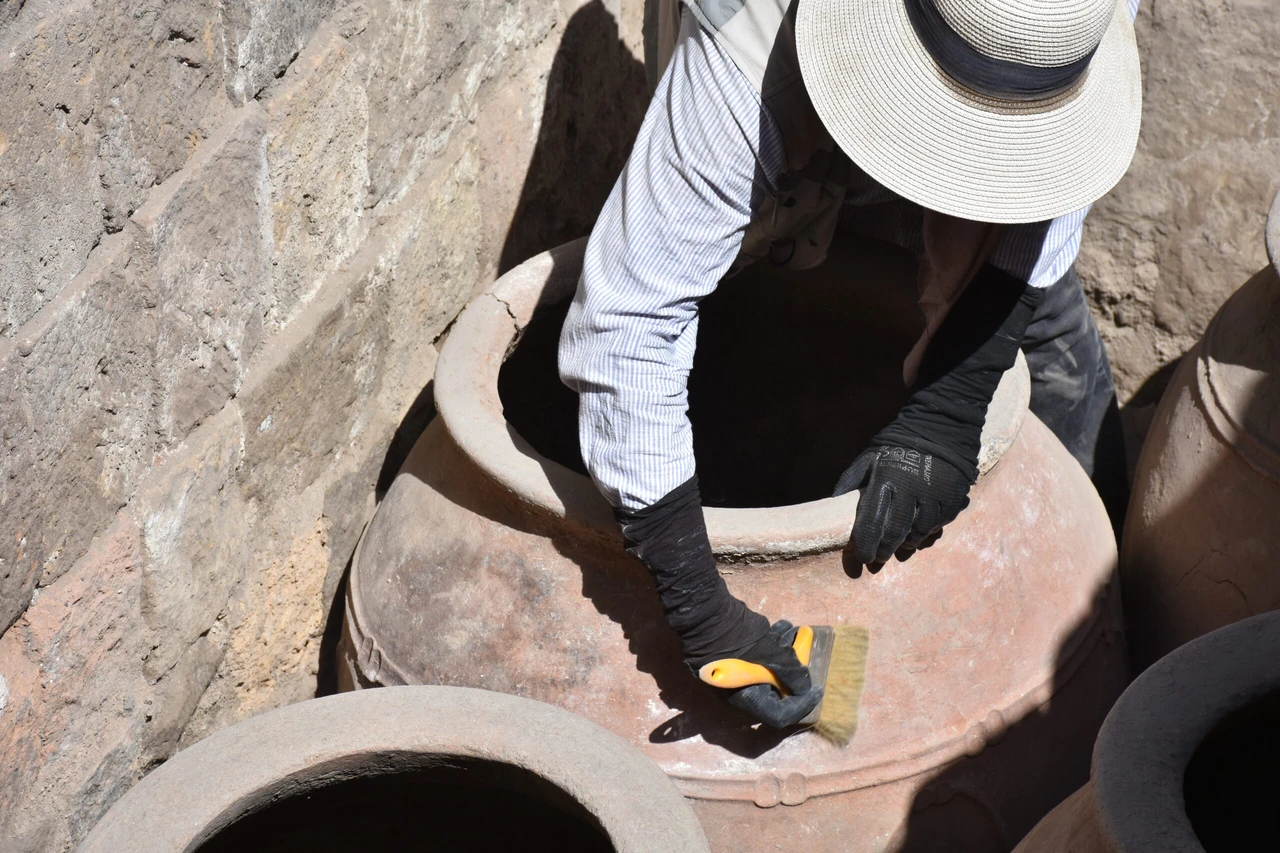 A Seljuk-era food storage and a ceramic fragment with a peacock motif, symbolizing paradise in medieval mythology, were discovered during excavations at the Ani ruins in Kars, Türkiye, September 10, 2024. (AA Photo)
A Seljuk-era food storage and a ceramic fragment with a peacock motif, symbolizing paradise in medieval mythology, were discovered during excavations at the Ani ruins in Kars, Türkiye, September 10, 2024. (AA Photo)
During ongoing excavations at the Ani ruins in Türkiye’s Kars province, archaeologists uncovered a Seljuk-era food storage facility.
Ani, once a bustling medieval city and a key stop along the Silk Road, was renowned for its architectural marvels and cultural significance. It was also the first Turkish-Islamic city in Anatolia, making it a vital historical site. This discovery adds another significant chapter to the historical richness of Ani, a UNESCO World Heritage site.
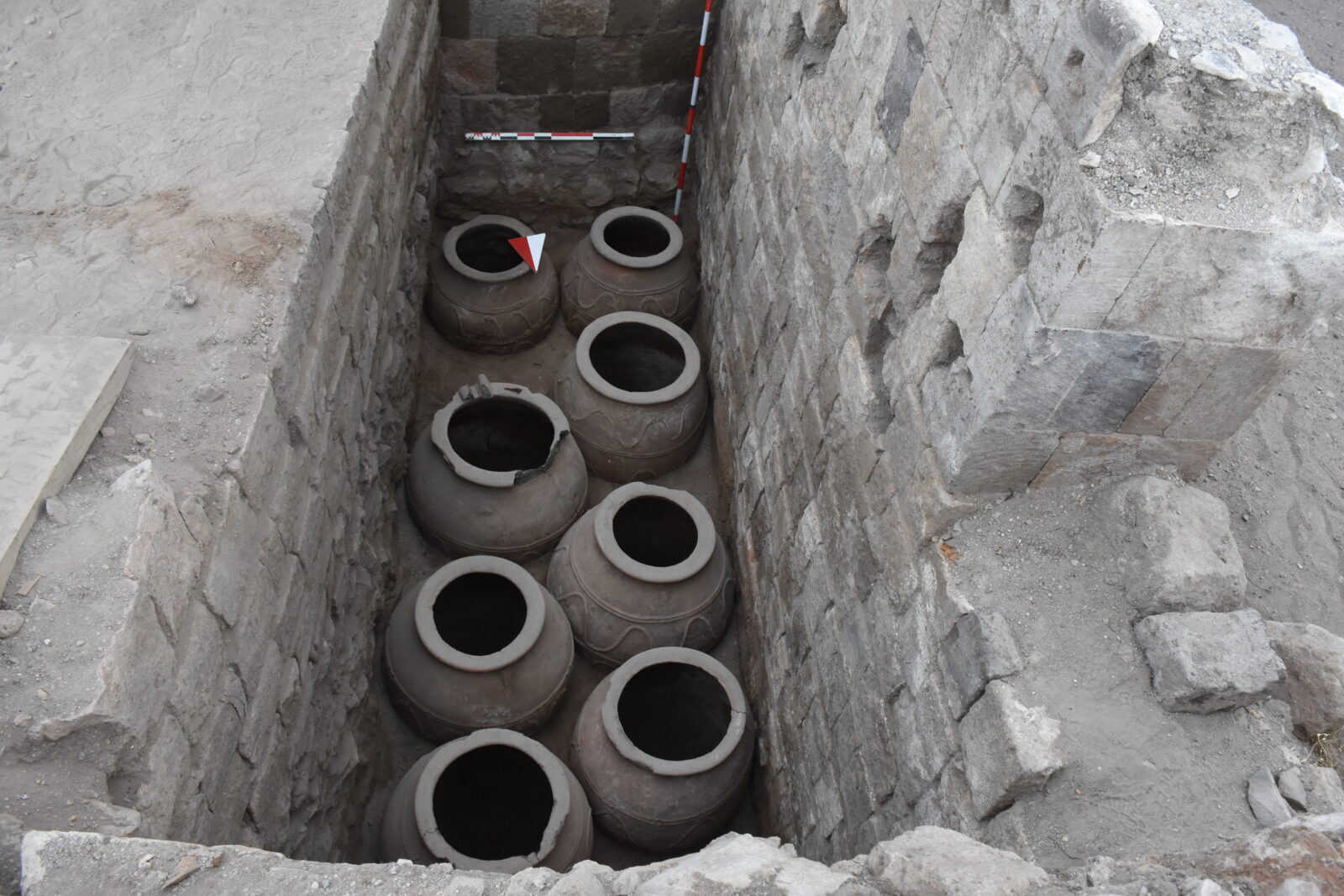
Seljuk-era food storage found in Ani
The archaeological dig, which has been active since 2019, is part of the Ministry of Culture and Tourism’s “Heritage for the Future” project. Led by associate professor Muhammet Arslan from Kafkas University, the excavation team consists of approximately 35 experts and students from various disciplines.
Among the key findings this year is a food storage area, containing eight ceramic jars, referred to as “pithoi,” which date back to the Great Seljuk era.
Additionally, the team found a ceramic fragment decorated with a peacock motif, symbolizing paradise in medieval Islamic mythology. Arslan explained, “The peacock motif represents heaven in Islamic iconography, adding spiritual significance to the find.” This discovery, alongside the food storage, further enhances the cultural and historical value of the excavation.
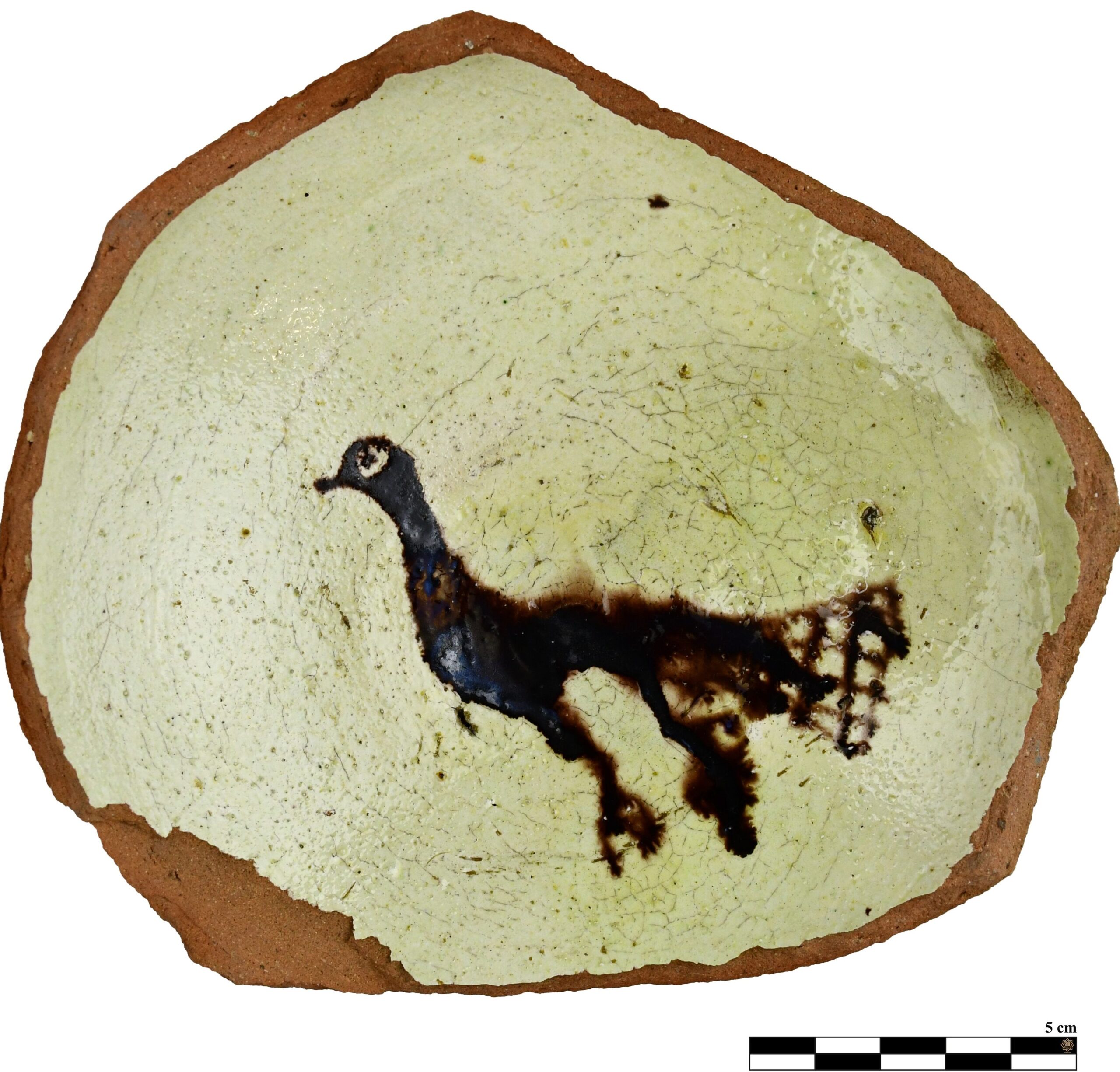
Peacock motifs represent heaven in medieval Islamic iconography
In addition to the storage jars, the excavation team uncovered a ceramic fragment adorned with a peacock motif. Arslan explained that the peacock symbolized paradise in medieval Islamic art, making the find even more significant.
“The peacock motif represents heaven in Islamic iconography, which aligns with its placement in a site as historically rich as Ani,” he said. This discovery adds an artistic and cultural dimension to the ongoing archaeological efforts.
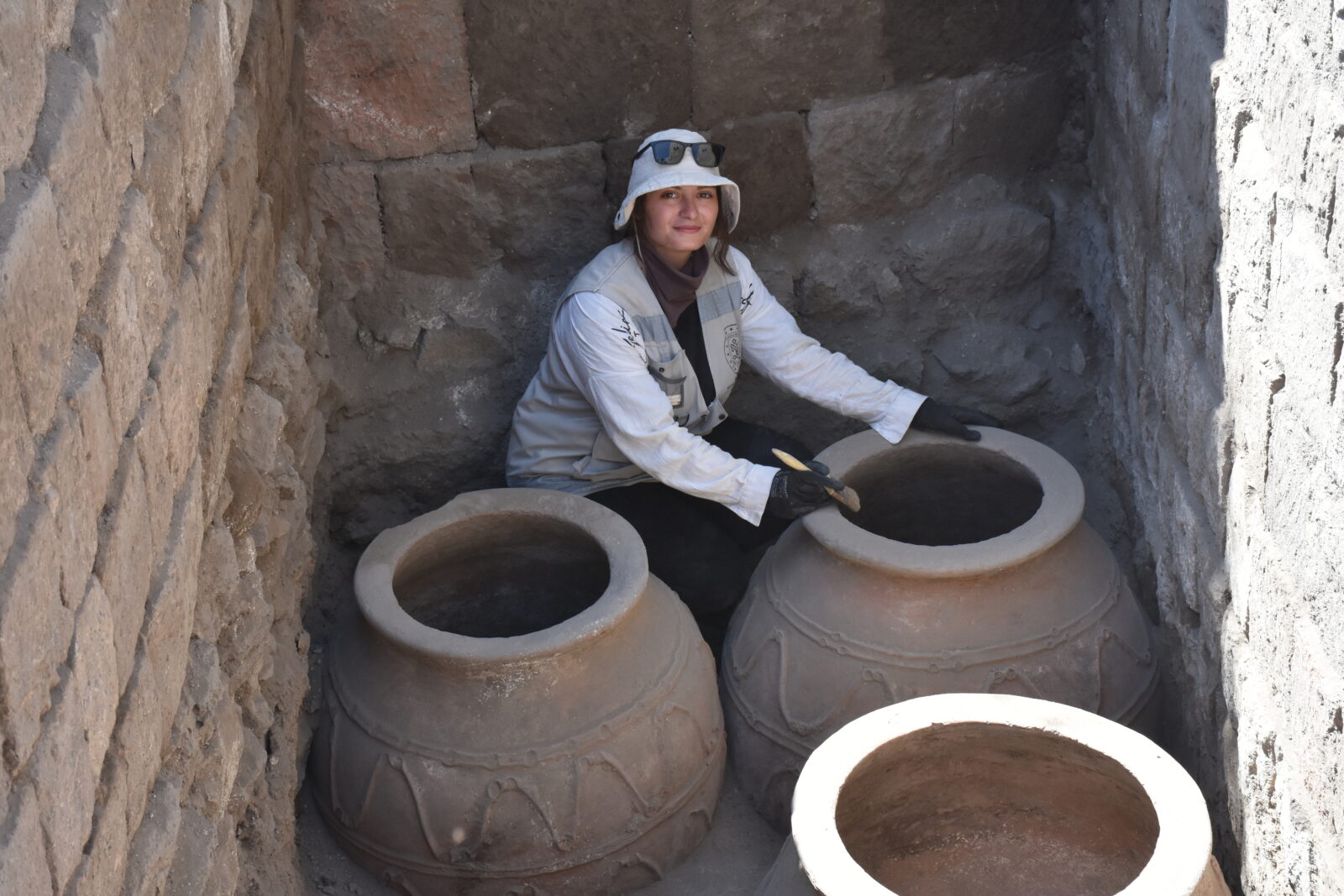
Ani’s rich history, role as valuable excavation site
Ani, located near the Türkiye-Armenia border and perched on a volcanic tuff layer west of the Arpacay River, has been a significant trade and cultural center since antiquity. Known as the first resting stop for travelers along the Silk Road, Ani’s wealth and prominence in the Middle Ages were closely tied to its strategic position.
Though initially established under the Bagratid dynasty, it was during the Seljuk period – following Sultan Alparslan’s conquest in 1064 –that the city flourished.

